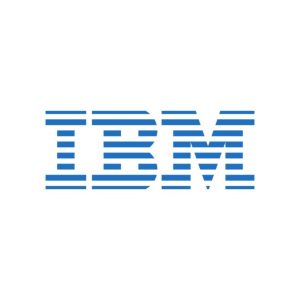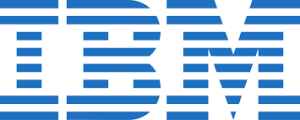- All
- Favorite
- Popular
- Most rated

Using Satellite Config to Deploy Resource Changes and Integrate DevOps
Learn how to use Satellite Config to deploy resource changes, set security policies, create configurations, and integrate DevOps for continuous delivery.

IBM Cloud Financial Services Survey
This survey relates to the IBM Cloud Financial Services Learning Path.

IBM Cloud Tools and Technology for Operations Management
This course introduces the tools and technology used by operations management for service management.

Architecture Considerations for IBM Cloud Security
This course introduces architects to the key functions of the cloud security framework.

Managing Role-Based Access Control on IBM Cloud
This course discusses how to manage Role-Based Access Control (RBAC) on IBM Cloud.

Apply Software Engineering Principles to Drive Reliability
This course describes how to articulate the value of software engineering principles such as Test Driven Development, Test Automation, Chaos Engineering, and Key Reliability Architecture Patterns.

Essentials of IBM Cloud Professional Developer
The Essentials of IBM Cloud Professional Developer badge is for learners who have acquired foundational knowledge of IBM Cloud features and benefits for Developers.

Security Engineer Accelerator Badge
The IBM Cloud Security Engineer Accelerator badge is for jam participants who have a fundamental knowledge of cloud security.

Security Measures and Security Options in IBM Cloud
This course introduces the learner to the security measures and security options within IBM Cloud including readiness, encryption and shared responsibility.

Designing Resilient Solutions using Technologies with Inherent Resiliency
In this course, you will review disaster recovery and multizone for Red Hat® OpenShift® and the client's and IBM's responsibilities for Code Engine.

Cloud Networking Components
This course introduces basic cloud networking components and explains how those components work together to form secure and robust cloud networks.

The IBM Cloud Console
This course reviews the IBM Cloud interface include the IBM Cloud console, IBM Cloud docs, command line interface, the Cost Estimator tool, the cloud shell and the IBM Support Center.

Troubleshoot Clusters on Red Hat OpenShift on IBM Cloud
This course reviews troubleshooting Red Hat OpenShift using the Red Hat OpenShift on IBM Cloud utilities.

Traditional Compute Options
This course covers the fundamentals of traditional compute options in the IBM Cloud® Platform.

Cloud Computing Characteristics, History, and Trends
This course reviews the history, key characteristics, and fundamental concepts of cloud computing.

Designing for Failure and Recovering from Failure
This course covers how to use practices to design for failure.

Setting Up Satellite Locations and Creating OpenShift Clusters on Satellite
Review the process for setting up an IBM Cloud Satellite location and provisioning an IBM Cloud Managed OpenShift cluster to the location.

Troubleshoot External Connections on IBM Cloud
This course discusses the methods and tools to connect to IBM Cloud externally, as well as the limitations and user case for each type.

Planning and Building Disaster Recovery Solutions
This course introduces the concepts of disaster recovery and high availability related to IBM Cloud.

VPC on IBM Cloud
This interactive course introduces you to the key concepts of Virtual Private Cloud (VPC).

An Introduction to IBM Cloud for Financial Services
This course provides an overview of IBM Cloud for Financial Services® and introduces the unique segments of the financial services industry.

Security and Compliance Goals
In this course, you will review cloud security and compliance goals. You will review the importance of cloud security and applying DevSecOps best practices.

IBM Cloud Services
This course explains what types of services are included in the IBM Cloud® Catalog, including compute resources, container services, storage and database services, and artificial intelligence.

VMware on IBM Cloud Bare Metal Servers for VPC
This course introduces IBM Cloud Bare Metal Servers for VPC for VMware Solutions. You will investigate the features and benefits along with what is needed for deployment.
The Founding of IBM and Its Evolution Over the Years
IBM’s roots trace back to the early 20th century, when it was initially founded as the Computing-Tabulating-Recording Company (CTR) in 1911 through the merger of three companies that manufactured various devices, including punch card machines and time-keeping equipment. In 1924, the company adopted the name International Business Machines, which aligned with its ambitions to lead the global market in technological solutions. During the 1930s and 1940s, IBM expanded its influence by introducing automated tabulation machines, which became essential tools for businesses and governments. IBM’s success continued with its innovations in mainframe computers in the 1950s and 1960s, which solidified the company’s position as a leader in computing technology. The IBM 701, released in 1952, was the company’s first large-scale electronic computer, and it marked the beginning of IBM’s dominance in the mainframe market.IBM’s Notable Milestones
Throughout its history, IBM has consistently been a leader in groundbreaking technology. Some of the company’s most notable milestones include:- 1964: The launch of the IBM System/360, a family of mainframe computers that could be used for a wide variety of tasks. This innovation was a turning point in the computing industry, allowing businesses to invest in technology that could grow and adapt with their needs.
- 1997: IBM’s Deep Blue, a chess-playing computer, made history by defeating world chess champion Garry Kasparov, showcasing the potential of artificial intelligence.
- 2011: IBM’s AI-powered system, Watson, won Jeopardy! against human champions, further cementing IBM’s leadership in AI research and development.
- 2016: IBM became one of the first companies to provide cloud services with its IBM Cloud platform, which today remains one of the most widely used enterprise cloud platforms worldwide.
- 2020: IBM advanced its quantum computing efforts by launching the IBM Quantum Experience, a cloud-based platform that allows researchers and developers to access quantum computers.
IBM’s Educational Offerings and Certifications
IBM’s dedication to education is evident in the wide range of courses it offers across multiple domains of technology. The company’s IBM Skills Academy is an industry-leading educational platform that provides learners with in-demand skills. IBM’s courses on EdCroma include specialized training in:- Data Science: Master the fundamentals and advanced techniques of data analytics, machine learning, and AI.
- Cloud Computing: Learn to develop and manage cloud infrastructure using IBM Cloud and other industry-leading tools.
- Blockchain: Gain expertise in blockchain development and its applications in finance, supply chain, and cybersecurity.
- Cybersecurity: Learn about the latest threats and how to defend against them, leveraging IBM’s extensive experience in securing enterprise-level systems.
- Quantum Computing: Explore the future of computing with IBM’s quantum education programs, which provide hands-on experience with quantum algorithms and development.
IBM’s Approach to Learning
IBM’s educational philosophy is centered on continuous learning and skill development. As technology evolves, so do the demands of the workplace. IBM ensures that learners stay ahead of the curve by offering courses that reflect the latest trends and technological advancements. Courses are designed to be interactive and engaging, with hands-on projects and case studies that help students apply what they’ve learned to real-world scenarios. Additionally, IBM emphasizes the importance of industry collaboration. Many of the company’s courses are developed in partnership with leading academic institutions and industry experts. This ensures that the curriculum is not only academically rigorous but also aligned with the needs of the business world.Why Choose IBM as Your Educational Partner?
IBM’s legacy of innovation, combined with its commitment to education, makes it a top choice for learners who want to excel in the tech industry. By enrolling in IBM’s courses on EdCroma, students gain access to:- World-class instructors with decades of industry experience.
- Cutting-edge resources and tools for hands-on learning.
- Globally recognized certifications that enhance career prospects.
- A community of industry professionals and thought leaders who are shaping the future of technology.

